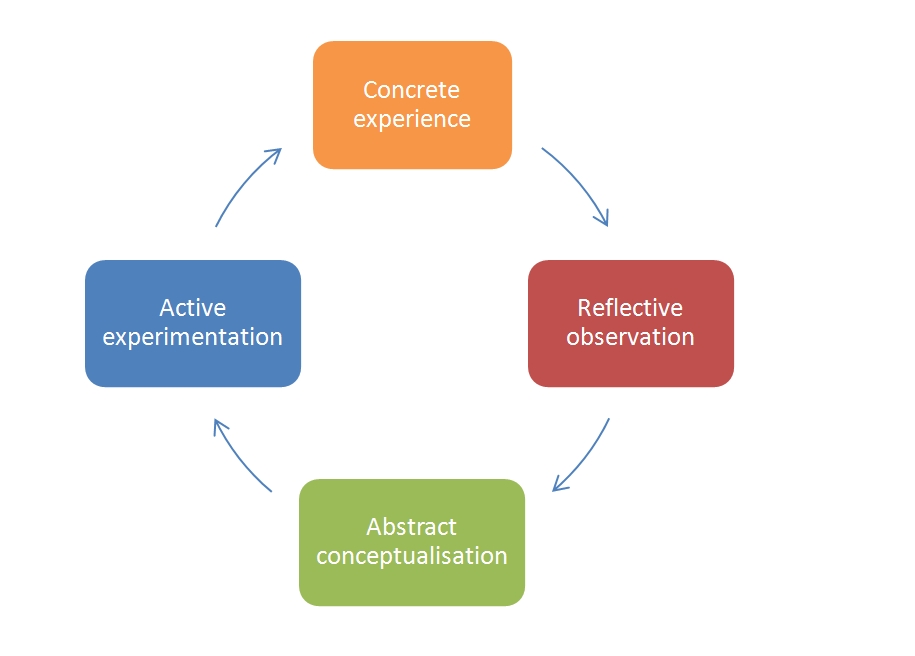A big part of my development is the experiences I have while studying at university. Having almost reached the end of Year 2, there are many examples of self-reflection that I have undertaken in order to improve as a student. One of the models I found useful was Kolb’s (1984) Learning Cycle and is referred to as “experiential learning” which signals that we learn best through our own experiences.
This model was of particular relevance to me when I evaluated my assignment feedback from previous modules. As someone who always strives for high standards in my academic work, it is necessary for me to act one the feedback I have been given, whether that be continuing my approach if the feedback is positive or making big changes if the feedback is critical.

Following Kolb’s cycle, I can evaluated a previous assignment:
Concrete experience
This means you experience a situation which makes realise that you need to reflect in order to improve or learn something new. One assignment that received a fair amount of negative feedback made me feel somewhat deflated as I had put in lots of time and effort to develop my answers and provide a well-rounded support. Aside from obvious disappointment, I was curious as to why I hadn’t achieved as well as what I thought I would and therefore began to examine the critique a bit closer. At this stage of the reflective cycle, I would just describe how I felt about the situation.
Reflective observation
For the second part of the cycle, I would examine what worked in the assignment and what didn’t – all based on the feedback I received. The main failure of the report was that it ultimately contained information that was unnecessary and irrelevant to the assignment’s objectives. Where I thought I was adding detail and supporting my arguments I was actually padding out my answers with vague information that failed to answer the question of the report. Consequently, this affected the word count as I surpassed the 2000 word count, which also impacted my grade. With this said, one positive aspect of the feedback was that I had included relevant references and had backed up my arguments with a quality and varied set of references which I was happy to hear as this research took a considerable amount of time.
Abstract conceptualisation
This stage asks the questions of what could I have done differently and how can I improve? One of the suggestions my lecturer provided was to look over the university’s resources on report writing as he believed I could rectify my elongated descriptions by studying how to structure and formulate a report. In order to improve the overall quality of my academic work, I have since read literature on how to succeed at academic writing so I am confident this independent study will benefit me as I head into the final year of university.
Active experimentation
The final stage of Kolb’s model is using the newly acquired knowledge from stage three and applying them to my actual work. Some of the ideas I have found will work, others won’t but the aim is to make these changes and further reflect on their success. I have taken the opportunity with this E-Portfolio to apply some of this new knowledge in the hope it will be a success. Some of the new knowledge acquired included expanding my vocabulary and including more academic models from accredited scholars to show that my reading has expanded. I believe these changes will positively impact my third and final year of study.